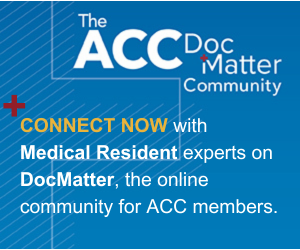With 200 general training programs across the country, Cardiology draws more trainees than any other specialty. It is also highly competitive. In the 2016-17 application cycle (i.e., applying for 2017 appointments), 1147 applicants applied for 866 positions. In other words, there were about 1.3 applicants for each position. Many large academic programs will receive 300-500 applications and only interview 50-100 applicants for 5-10 positions.
Who is applying?
In the 2016-17 cycle, NRMP reported 56% of cardiology fellowship applicants were U.S. allopathic graduates. About 26% were non-U.S. international medical graduates (IMGs), and the remainder were primarily U.S. IMGs (11%) and osteopathic graduates (7%).
Who is successful?
The overall match rate for all cardiology applicants in the 2016-17 cycle was 75%. While U.S. allopathic medical graduates have a relatively high match rate (~90%), the match rate was only 61% for all other categories of applicant.
What makes for a successful match?
According to data published in the NRMP Program Director Survey, some of the most important factors to being selected for an interview and ultimately matching, as cited by fellowship program directors, included letters of recommendation, residency program reputation, demonstrated involvement and perceived interest in research, and interactions with faculty/interpersonal skills during interviews. Data on the attributes of successful candidates, including mean USMLE Step scores, is available in Charting Outcomes in the Match.
For more in-depth advice on the fellowship application process, check out our "Path to Fellowship" series, in which the ACC's resident members interview cardiology fellowship program directors and others involved in the selection process. The first article in the series focuses on the application (e.g., personal statement, letters of recommendation) and is available here: Path to Fellowship: The Application
Sources/Resources
- National Resident Matching Program, Charting Outcomes in the Match, Specialties Matching Service®, Appointment Year 2011, Characteristics of Applicants Who Matched to Their Preferred Specialty (May 2013), LINK TO DOCUMENT .
- National Resident Matching Program, Results and Data: Specialties Matching Service, 2017 Appointment Year (Feb. 2017), LINK TO DOCUMENT .
- National Resident Matching Program, Results of the 2016 NRMP Program Director Survey Specialties Matching Service (Oct. 2016), LINK TO DOCUMENT .









